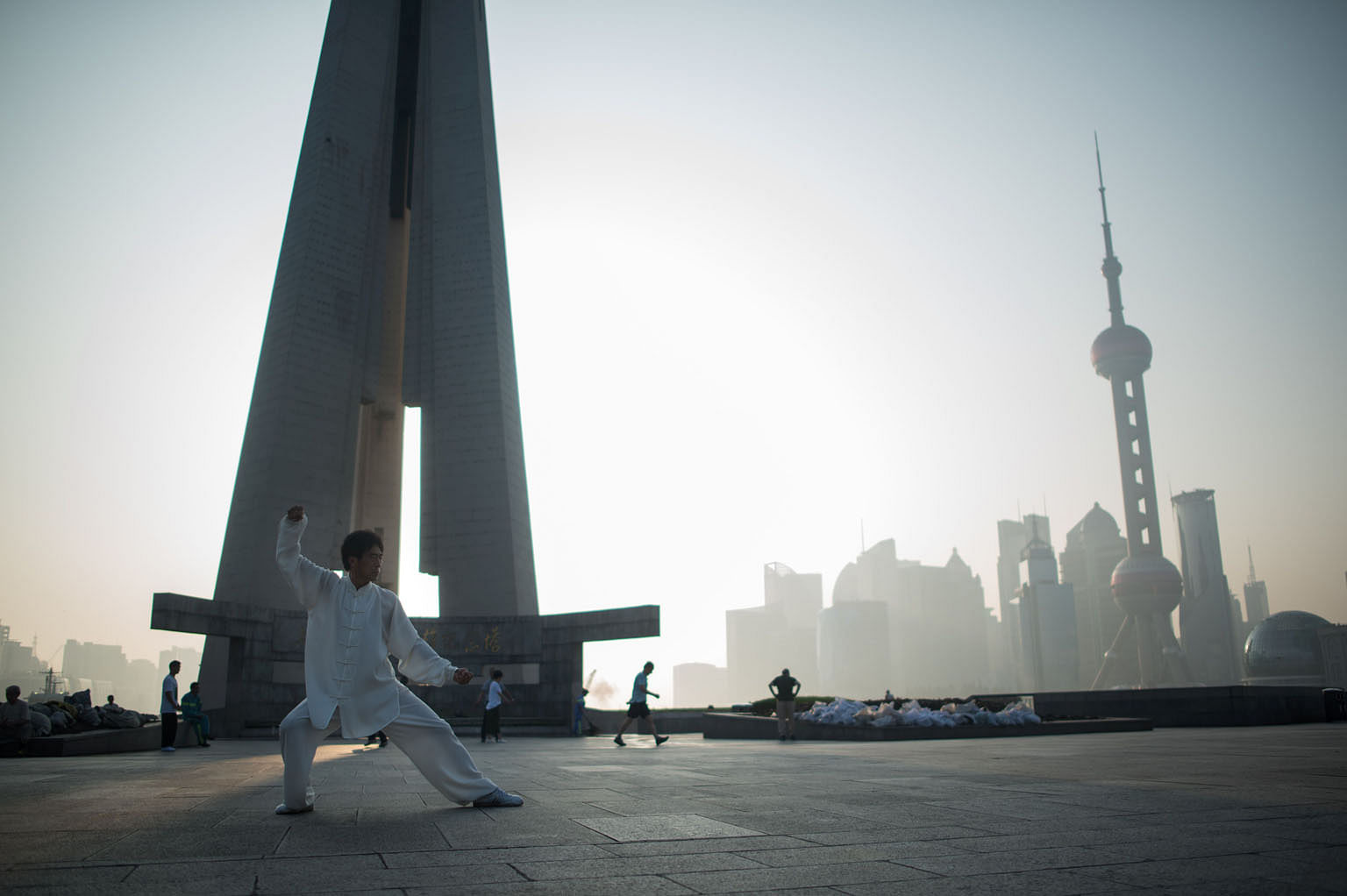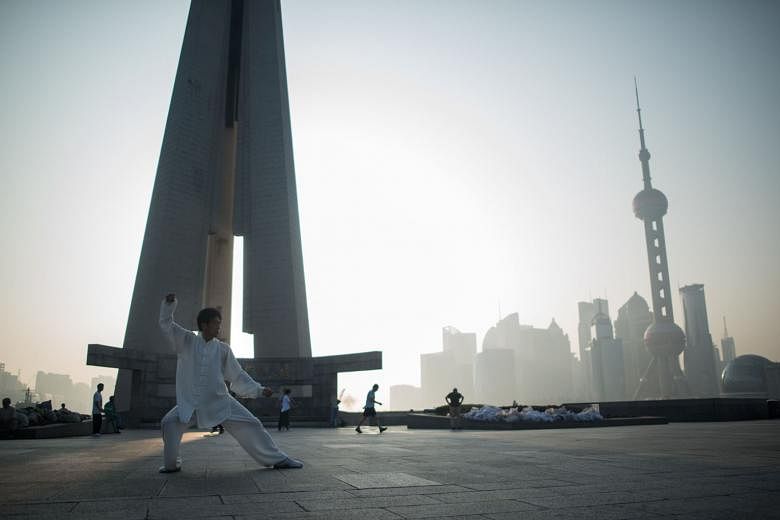Philippines needs AIIB loans
Editorial
Philippine Daily Inquirer
Despite its territorial dispute with China, it's possible for the Philippines to have strong trade and investment relations with the global economic powerhouse. One major avenue for this is the Asian Infrastructure Investment Bank (AIIB), which the Philippines joined at the last minute in December last year.
Since its launch last January, the Beijing-based bank has approved four loans worth US$509 million (S$686 million) for projects in Pakistan, Tajikistan, Indonesia and Bangladesh. Multilateral lenders, such as the World Bank, usually take more than a year to approve similar project loans.
Given China's bullying of smaller nations contesting territories in the South China Sea, the infrastructure lending programme through the AIIB has been met with suspicion. But while China is its single biggest shareholder, there are 56 other countries that account for more than two-thirds of the AIIB.
Still, being the proponent and the biggest shareholder with a 26 per cent stake, China designed the bank to tie in with its overall economic agenda, particularly the "New Silk Road" initiative, which aims to link Asia, Europe and Africa through the construction of massive infrastructure such as railways and ports, with the AIIB financing many of these projects.
Also called the "One Belt One Road" programme, the New Silk Road is believed by some experts to even help ease tension around the South China Sea as it expands economic cooperation among neighbours in the region, including those with which China is in dispute, such as the Philippines and Vietnam.

Billions of dollars in investments are expected to pour into the construction of railway facilities, airports and sea ports, and power plants that, in turn, would spur the growth of job-generating factories.
Besides, while it is true the AIIB is linked to China's own economic and strategic goals, what is wrong in having better China-funded infrastructure in the country? Even without the New Silk Road, the Philippines and other developing nations in the region need the AIIB.
The Asian Development Bank (ADB) has estimated the infrastructure needs in the region as requiring US$750 billion in investments annually until 2020, which it cannot finance on its own. The Philippines' infrastructure financing needs from 2010 through 2020 was placed at US$127.12 billion.
This will require an annual investment of US$11.56 billion, which the government failed to fill in the past six years.
The AIIB has been described as modern and multilateral, or China's "21st-century" answer to lenders like the World Bank, which has always been led by the Americans, and the ADB, which is dominated by Japan. And the Philippines will be better off borrowing through a more transparent AIIB lending window now.
Sino-Malaysia tie-up 'is natural'
Editorial
China Daily
Reports that Chinese and Malaysian businesses are researching a port expansion project at Port Klang in Malacca, if confirmed, would suggest another step in advancing the Belt and Road Initiative.
Expansion of the port is certainly necessary, as Malaysia's largest port in the Strait of Malacca has seen its handling capacity nearly saturated in its existing port areas.
And cooperation between the two countries on the project would be natural, not only because Chinese technology and expertise in port construction have been outstanding in the global sector, but also because Malacca is a major stop on the 21st century Maritime Silk Road that China is looking to create with other countries.
A Malaysian newspaper cited the country's Transport Minister Liow Tiong Lai as saying that outside businesses are welcome to invest in the expansion project.
Also, there should be a firm foundation of trust, as Port Klang already has well-established sister-port relationships with major ports in China such as Dalian, Ningbo and Guangzhou.
Talk of such cooperation on infrastructure should come as no surprise, as China is now the largest trading partner for some 130 economies, and is on its way to becoming the largest source of outbound direct investment.
So far, dozens of countries have officially agreed to join hands with China to turn the cross-continent cooperation plan into reality, and the mooted cooperation with Malaysia to expand Port Klang is just the latest manifestation of this common desire.
Beijing not a threat: Jakarta
Pierre Marthinus
The Jakarta Post
The world's third-largest democracy will continue to reject any form of provocation and direct confrontation with China in the South China Sea.
Despite repeated incidents in its exclusive economic zone and territorial waters off its Natuna Islands chain, Indonesia continues firmly on this policy path.
Compelling foreign policy considerations shape Indonesia's "see no China" policy.
First, Indonesia's "foreign policy priority" puts a premium on economic diplomacy.
Under Joko "Jokowi" Widodo, Indonesia consistently emphasises its commercial interests, inbound foreign investments and future infrastructure assistance projects above pompous assertions of territorial sovereignty.
Jakarta understands China is the main economic growth engine for South-east Asia and the larger Asian region.
Similarly, Beijing acknowledges Indonesia's economic centrality in South-east Asia.
Today, Jakarta's US$44 billion (S$59.3 billion) trade with China remains strong and first-quarter investments from Beijing experienced a 400 per cent increase from last year.
Second, Indonesia's "foreign policy proximity" gravitates towards great powers that actually have a plan for the region.
Indonesia's Maritime Fulcrum initiative edges closer towards China's Maritime Silk Road plans simply because Beijing has repeatedly proven that its "One Belt, One Road" (OBOR) grand design is fully backed by a strong political will at home and massive financial resources to be distributed abroad.
Next, Indonesia's "foreign policy principle" dictates an "independent and active" position.
Jakarta's flexible hedging discourages it from locking into an alliance with the West, taking sides in great power rivalries, or inviting external powers into the region by escalating tensions with China.
This is why Indonesia is joining both the US-led TPP and the China-led AIIB, while welcoming both Chinese port-based infrastructure investment projects and US assistance in maritime capacity building.
Indonesia's "see no China" policy is a particular interpretation of its foreign policy principle - not an abnegation of it.
Another point is that Indonesia's "foreign policy practice" rejects Chinese military assertions in South-east Asia, but welcomes its institution-building engagements.
Currently, embryonic forms of a potential Sino-centric institutional order is emerging through the AIIB, the Chiang Mai Initiative Multilateralism, China's OBOR initiative and its Silk Road Fund, alongside numerous regional comprehensive economic partnerships in which Beijing's influence is growing powerful.
Lastly, Indonesia's "foreign policy perspective" does not view China as a security threat.
Jakarta's depiction of the Natuna incidents as a fishing issue was intended to downplay and reframe the incident as an economic "maritime resource dispute", not a political "territorial sovereignty dispute".
Indonesian state oil and gas company Pertamina's plans to develop the East Natuna gas fields in maritime areas claimed by China will stir up problems down the road, but this is likely to be downplayed and reframed again as a mere "maritime resource dispute".
- The View From Asia is a weekly compilation of articles from The Straits Times' media partner Asia News Network, a grouping of 21 newspapers.

